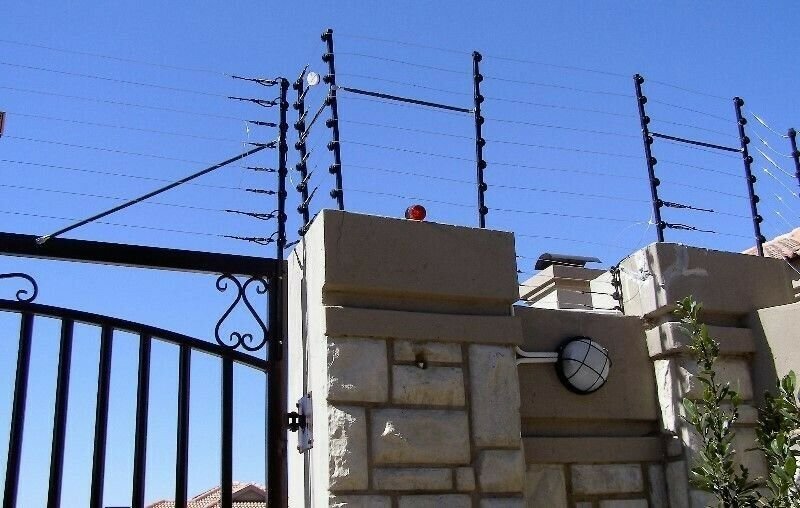Legal risks, safety concerns, and the latest updates every electric fence owner needs to know
For many South African households, electric fencing has become as common as a high wall or security gate. With crime remaining a top concern in cities like Johannesburg, Cape Town, and Durban, the zap of an electric fence offers both psychological and physical security. But what most homeowners don’t realise is that this very security measure can turn into a legal nightmare, one that could cost you not just fines, but jail time.
Your Security Setup Could Be a Crime Scene
According to legal experts from DSC Attorneys, electric fences, while usually safe to touch briefly can pose serious risks, especially for children, people with pacemakers, or anyone who might become entangled. It’s not just about safety. It’s about compliance.
Under South African law, you must have an electric fence Certificate of Compliance (CoC) issued by a qualified installer who’s registered with the Department of Labour. No CoC? You’re in violation of the law. If someone is injured or worse, because of your fence, you can be criminally and civilly liable.
What the Law Says (And What Many Ignore)
Here are just a few legal requirements that come with owning an electric fence:
-
Your wall must be at least 1.5 metres high before installation.
-
The fence may not be electrified barbed or razor wire.
-
Warning signs must be placed every 10 metres and at all gates or access points.
-
You need at least three earth spikes for every 30 metres of fence.
-
The fence must not jut into your neighbour’s property, unless they give permission.
-
The gate must be operable without giving someone a shock.
In addition to being a legal necessity, that CoC is also vital if you ever need to make a claim with your home insurer. No certificate? No payout.
SABS Crackdown: New 2023 Standards You Might Have Missed
The South African Bureau of Standards (SABS) introduced tougher guidelines in June 2023 to address increasing injuries and poor-quality installations. These cover everything from better quality materials to more specific requirements for warning signage and safety testing.
Despite these updates, Fidelity Services Group’s Charnel Hattingh warns that many of these regulations are still not being followed, largely because there’s no official oversight body doing the checks. That makes it even more critical for homeowners to act responsibly.
You Need Two Kinds of Inspections, Yes, Really
Hattingh recommends electric fence owners do monthly visual inspections as well as quarterly professional check-ups. These ensure your fence is still compliant and hasn’t deteriorated or been tampered with. And it’s your job, not the installer’s to make sure this happens regularly.
Electric Fences Aren’t Burglar-Proof
Let’s be real. While electric fences might stop an opportunist, seasoned criminals have learned how to bypass them. Increasingly, private security companies are urging clients to go beyond the wire, recommending AI-powered security cameras and alarm systems linked to 24/7 control rooms.
In wealthier suburbs, these smart systems can detect human movement, alert the control room instantly, and send armed response units in minutes. In contrast, a poorly maintained fence with no alert mechanism is often just a glorified scarecrow.
Public Response and Cultural Insight
On social media, many South Africans were surprised to learn that failing to have a CoC could result in legal action. “I thought the electric fence was just plug-and-play. No one told us about compliance!” posted one X (formerly Twitter) user. Others shared frustration about fly-by-night installers leaving them with unverified systems.
Given South Africa’s unique security landscape, where safety is often a personal responsibility, this lack of awareness could prove disastrous.
Don’t Get Shocked by the Law
If you’ve invested in an electric fence to protect your loved ones, don’t let it become a liability. Make sure it’s legally compliant, regularly inspected, and professionally maintained.
Security begins with responsibility and in South Africa, that responsibility comes with clear rules. Break them, and you won’t just be fighting off intruders, you’ll be fighting a criminal record.
Tip for Homeowners:
When hiring an installer, ask for their Electric Fence System Installer (EFSI) number and confirm it’s valid. Better safe than in court.




























